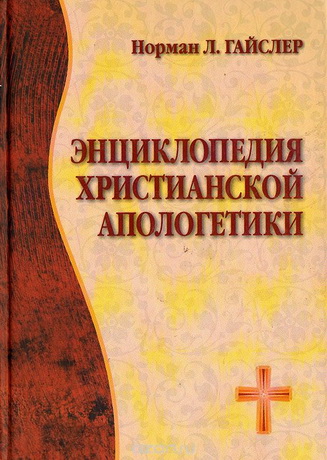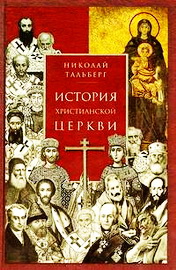
Hindson - Mitchell - Popular Encyclopedia of Church History
Ed Hindson, Dan Mitchell - Popular Encyclopedia of Church History
Harvest House Publishers, 2013. - 400 p.
ISBN-13: 978-0736948067
The history of Christianity is the story of a man, Jesus of Nazareth, and a people who call themselves his disciples. Their faith is based upon his life, teachings, sacrificial death, and triumphal resurrection. His followers are the fulfillment of his own "great prediction," "I will build My church, and the gates of Hades shall not prevail against it" (Matthew 16:18). From the moment the Holy Spirit came upon the original 120 believers in the upper room, until today, that prophecy has continued to be fulfilled with amazing results.
The eminent church historian Kenneth Scott Latourette observed that Christianity has not only become the world's largest religious faith, but "measured by its effects, Christianity has become the most potent single force in the life of mankind."* In the nearly 2000 years since its inception, Christianity has multiplied into thousands of churches, schools, hospitals, and orphanages worldwide. Today, Christianity claims two billion followers of Jesus Christ. These include North Americans, Latin Americans, Native Americans, Europeans, Asians, Africans, and those on the far-flung islands of the globe.
Christian churches can be found on every inhabited continent of the world. These faith assemblies meet in everything from warehouses to cathedrals, from private homes to public arenas, and from grass huts to towering skyscrapers. The diversity of global Christianity is the most unique of all the religions of humankind. While Christians may differ in how they worship and where they worship, they all claim to worship Jesus Christ as Savior, Lord, and God.
In order to help these laymen and pastors alike, we have assembled a team ofscholars from both the resident and online faculties of Liberty University to provide a series of succinct articles on maj or people, events, and movements in this Popular Encyclopedia of Church History. We have endeavored to select topics of interest to evangelical readers in particular, while also acquainting readers with everything from the church fathers, Catholic theologians, medieval monks, the Protestant Reformation, the evangelical revivals, global missions, and more. By the limitation of space, we have had to be selective in this process. But it is our sincere prayer and desire that what we have included will inform your mind, bless your heart, and stir your soul.
Jonathan Hill writes, "The story of Christianity, its transformation from an illegal sect to the religion of emperors, kings and presidents, and its spread across the glob e, is an endlessly fascinating one... it is a story not just of how Christianity has changed the world, but how the world has changed Christianity... as it has spread to virtually every culture on earth." *As Philip Schaff, the father of American church history, has observed, it is a story that has two sides: the human and the divine. t It is the story of fallible human beings who dared attempt to represent the will and purpose of the infallible God. May a glimpse into their lives, hopes, dreams, and concerns challenge you with a pass ion to fulfill God's purpose in your life and your own generation.
* * *
AMYRAUT, MOISE (1596-1664)
A French theologian in the Calvinist tradition, Moise Amyraut was noted for his distinctive defense of the doctrine of unlimited atonement. Abandoning the classical Calvinist view that Christ died only for the elect whom God has chosen beforehand for salvation, Amyraut taught a conditional universalism. In addition to predestinating the elect to salvation unconditionally, he argued that God has predestinated all humans to salvation conditionally-that is, if they believe. This universal predestination does not actually save anyone; only those whom God has individually chosen for salvation really come to belief. Nonetheless, claimed Amyraut, God can desire, and sincerely does desire, the salvation of all humans, since all have a natural ability to believe. However, because by themselves humans are morally incapable of exercising faith, only the elect are actually saved:
However, this act of divine love does not go beyond the point of providing salvation to people if they do not refuse it. If they do refuse, he removes this hope from them, and by their unbelief they aggravate their condemnation. And thus the statement "God desires all people to be saved" necessarily includes this proviso: "if they believe." If they do not believe, God does not desire their salvation. God wills to make the grace of salvation universal and common for all humans; but this will is conditional: unless the condition is met, it is entirely ineffective. We see, then, on what the fulfillment of the condition depends, and consequently we see the particular efficacy of God's universal grace (Brief Traitte de la predestination, 89-90).
Amyraut's theology was not Arminian. For him, God's initiative alone ultimately determines who will be saved, whereas for Arminians the individual's response is decisive. Still, Amyraut's doctrine immediately met strong opposition among Calvinists. He was tried for heresy three times (and was acquitted each time). Charles Hodge's verdict may fairly represent the judgment of most theologians: Amyraut's teaching was "designed to take a middle ground between Augustinianism and Arminianism" but "is liable to the objections which press on both systems" (Systematic Theology, vol. 2, 322).
Because Scripture states that God "desires all people to be saved" (1 Timothy 2:4), Amyraut's viewpoint has remained influential, and other defenders of unlimited atonement are often considered his followers. These so-called Amyraldians have not always accepted Amyraut's central notion of hypothetical universalism. The nineteenth-century dispensationalistJ.N. Darby, for example, suggested that Jesus offered himself as an unconditionally universal propitiation and a limited substitute: "He is a propitiation for the whole world. All has been done that is needed... But it will never be found in Scripture that Christ bore the sins of all. Had he done so, they never could be mentioned again, nor men judged according to their works" ("Propitiation and Substitution," 278).
As an instructor at the Protestant Academy at Saumur in France and a popular writer, Amyraut was an influential voice for Christian unity. His most famous student was William Penn, whose Pennsylvania Charter of Liberties (1701) is a landmark in the progress of American religious freedom.
Greg Enos
Bibliography
- Amyraut, Moise. Brieftraittetielapredestination et ses principales dependences. Saumur, France: Jean Lesnier & Isaac Desbordes, 1634, (available online).
- Armstrong, Brian G.Calvinism and the Heresy: Amyraut Protestant Scholasticism and Humanism in Seventeenth-Century France. Eugene, OR: Wipf & Stock, 2004.
- Darby, John Nelson. "Propitiation and Substitution." The Collected Writings of J.N. Darby, vol. 29, 286-288. Edited by William Kelly. London: G.Morrish, 1879.
- Hodge, Charles. Systematic Theology. Grand Rapids: Eerdmans, 1977 (1872).





Комментарии
Пока нет комментариев. Будьте первым!